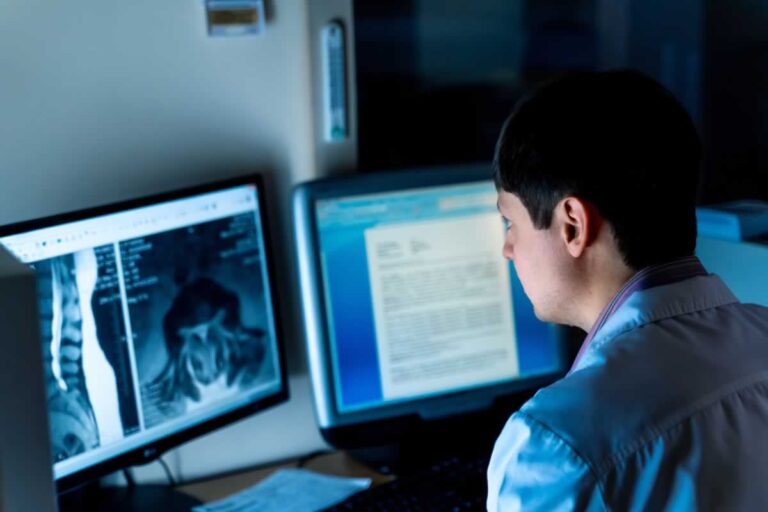Is Efficiency the Key to Raising Standards in Radiology?

[London, 24 August 2022] – Augnito’s latest blog addresses the current challenges within radiology and poses efficiency solutions to manage the backlogs with direct improvements on patient care.
Understaffing is a real challenge across the NHS, however within radiology this is nothing new, the pandemic only compounding an existing problem which continues to await solution. At this time, radiology continues to be severely understaffed, resulting in scan backlogs, while falling below safe staffing quotas making it impossible to keep up with demand. Those in post are at risk of burn out, with staff morale affected and many planning to cut their hours or leave the NHS. The Royal College of Radiologists’ estimates today’s consultant capacity at just a third of the required workforce. Without intervention, that shortfall is expected to hit 44% by 2025.1
Shiraz Austin, Managing Director at Scribetech (UK) Ltd and Co-Founder of Augnito, stated: “We are at a critical point across the NHS with unprecedented staff shortages and resulting backlogs. Not only is this alarming for healthcare professionals working to mitigate the risks, but for patients, particularly within radiology where early diagnosis can quite literally save lives. Without appropriate staffing resources, patient care is delayed, therefore diagnosis takes longer, as does resulting treatment. Every day that passes without a solution only adds to the workload, scan backlogs and staff pressure.
Until there are more consultants in training and protection of existing staff on the front-line an immediate solution is required, a new way of working needs to be implemented to aid backlogs, give visual results and offer well needed support.”
Scribetech offers expert health-tech and speech recognition (SR) advice to mitigate risks; the latest blog tackles individual efficiency, support for radiologists to deliver exceptional care to patients and the long-term effect of efficient reporting using the company’s SR solution, Augnito.
Austin continued: “Technology is ever evolving and providing access to the latest AI voice driven clinical speech recognition solution will support the backlogs whilst mitigating the increase in reporting demand. The right technology helps staff do more in less time, more accurately, and more flexibly supporting today’s workstyle.”
Augnito AI-driven speech recognition accurately generates reports. Available in the cloud with no need for additional hardware or software, Augnito gives every radiologist a much faster and more flexible way of working – one that helps accurate diagnoses happen sooner.
Today, accurate speech recognition can lessen the burden on radiologists, improve workloads, and increase wellbeing and workforce retention. So perhaps the real question is ‘why the delay, what are you waiting for?’
ENDS

For further information, interview opportunities or accompanying graphics please contact: Georgina Pavelin, Mixed Media – [email protected]
About Scribetech
Scribetech (UK) Ltd is a clinical voice solutions innovator, fusing 20 years of transcription and digital dictation services to the NHS, speech-to-text and clinical coding solutions for the healthcare sector, and its own speech recognition engine and advanced voice AI technology.
About Augnito
Created by Scribetech, Augnito is its secure, cloud-based, AI-driven clinical speech recognition product suite. It offers fast, easy ways to capture live clinical data on any device with 99% accuracy, support for multiple medical specialties, and no need for voice profile training. Augnito brings seamless speech recognition to daily workflows and third-party clinical systems, turning medical information into clinical documentation and making healthcare intelligence securely accessible everywhere.
www.scribetech.co.uk/augnito-speechrecognition
https://www.scribetech.co.uk/2022/06/01/why-efficiency-is-key-to-raising-standards-in-radiology/
1 https://www.rcr.ac.uk/system/files/publication/field_publication_files/clinical-radiology-uk-workforce-census-2020-report.pdf